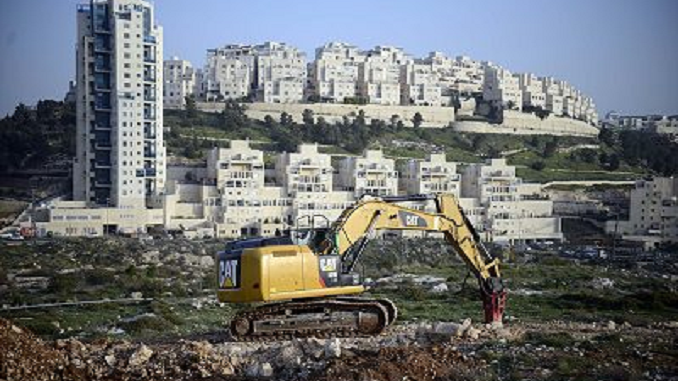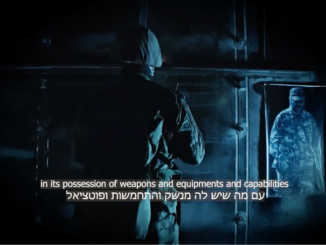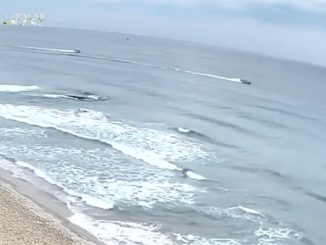
Israeli forces on Wednesday razed lands in the northern occupied West Bank district of Jenin as well as the southern West Bank district of Hebron, according to Wafa news agency.
Israeli forces raided the Jenin-area village of Thahr al-Malehto and razed nearly 50 dunums (12 acres) of land, consisting of dozens of olive trees, allegedly in order to build a section of Israel’s separation wall around the illegal Israeli settlement of Shaked.
WATCH: The Israeli settler population surged last year, according to a settler leader who thanked Trump for the increase. Israeli settlements are war crimes under international law and are built on stolen Palestinian land. pic.twitter.com/aMruHBgI8A
— The IMEU (@theIMEU) February 21, 2018
Palestinian residents of the village say they have been left with no access to their lands from the northern side of the village. Once the wall is completed, it will engross more than 1000 dunums (247 acres) of lands belonging to residents from the Jenin area.
Meanwhile in Hebron, Israeli bulldozers reportedly razed six dunums (1.5 acres) of agricultural lands in the village of al-Baqaa in the eastern Hebron district.
Jared Kushner failed to disclose he led a foundation funding illegal Israeli settlements before U.N. vote https://t.co/qx7DRp6Rxt
— صمود Ziomythologist (@Aer_O_Head) February 22, 2018
The lands are reportedly located near a road that leads to the Israeli settlement of Kiryat Arba.
Israel’s separation wall, expected to reach 708 kilometers upon its completion – 88 percent of which is planned inside occupied Palestinian territory, is a common sight in the occupied West Bank, where Israeli-installed cement walls and barrier fences wind along the landscape.
International pressure on Israeli settlements renews push for US anti-boycott laws https://t.co/UlsCTfHluC via @AlMonitor
— Messiah Mahdi (@TeamKalkiUN) February 21, 2018
Israeli leaders often claim that the wall serves a security purpose to deter potential Palestinian attacks on Israelis. However, many activists, academics, and analysts have said that the wall is instead a massive “land grab” of large tracts of the Palestinian territory, and a strategy to consolidate Israel’s sovereignty over Area C – the more than 60 percent of the occupied West Bank under full Israeli control – where all of Israel’s illegal settlements are built or are in the process of being constructed.
Area C of the West Bank was expected to be gradually transferred to the jurisdiction of the Palestinian Authority (PA) according to the Oslo peace agreements in the 1990s. However, decades later Israel still maintains full civil and military control over the area.
Israel began building the separation wall with concrete slabs, fences, and barbed-wire inside the occupied West Bank in 2002 at the height of the Second Intifada, claiming it was crucial for security.
The ICJ issued an advisory opinion in 2004 stating that the wall was illegal under international law and its construction must stop immediately, adding that reparations should be paid to Palestinians whose properties were damaged as a result of the construction.
Today = 10th Anniversary of @ICJ_org Ruling: Israeli Settlements & Wall Are Illegal http://t.co/nZIuPexM2k #BDS pic.twitter.com/D5KKgLFS6g
— #NoJusticeNoPeace (@PalsJustice) July 9, 2014
However, the wall’s construction has continued unabated, encroaching deep into the Palestinian territory, and leaving Palestinian neighborhoods stranded on both sides of the barrier, and isolating communities from their agricultural lands.
(Ma’an, PC, Social Media)







